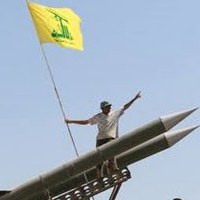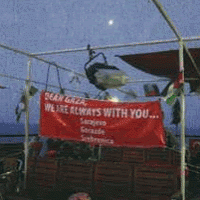![]()
Wed, Nov 17, 2010 | The Rubin Report | By Barry Rubin
No One Understands What Victory Means
General Sir David Richards, commander of the British military and former NATO commander in Afghanistan, gave an interview to the Sunday Telegraph that is extremely important and easily misunderstand. The headline statement has been Richards’ remark that a military victory against al-Qa’ida and the Taliban is not possible.
Many have seen this quote is one more example of a disturbing trend in which the West lacks the willingness to attain victory, the patience and staying power to fight the revolutionary Islamist threat whose very existence is denied by all too many. This is certainly a real issue and a reasonable concern but Richards isn’t joining that kind of thinking. If we listen to what he’s actually saying (and not saying) we can understand the situation better.
The great, secret weapon of these radical forces is a refusal to compromise or give up. No matter how long the battle goes on, how many are killed, or how their countries are wrecked, these extremists will go on fighting. This gives them two tremendous advantages:
–First, they can wear down (or think they are wearing down) their enemy, outlasting them. The idea is one of winning victory by getting the other, stronger side to give up because its people fear death or don’t want to pay the financial price of the conflict, or just lose interest.
–Second, they can play on internal defeatist forces on the part of the West. Just by making them kill your people, wreck your buildings, and inflict suffering, they can be made to feel so guilty as to abandon the struggle.
There are many in Western political, intellectual, and media circles who advocate appeasement, concessions, and even surrender. But this does not seem to be what Richards is saying.
According to his interview, Richards does view this is as a necessarily protracted struggle, his estimate is that the battle will go on at least 30 years may prove optimistic. He points out that military means alone cannot root out an idea.
Attempts by the West to achieve this were unnecessary, said Sir David Richards, the Chief of General Staff, who also defended the right of fundamentalist Muslims to adhere to beliefs which underpin their lives. He stressed that one cannot defeat ideas merely through fighting wars. Islamism, he avers, isn’t going to disappear, nor does he wish to challenge the right of “fundamentalist” Muslims to hold their beliefs.
Instead he puts forward a practical, functional definition of victory: contain the enemy, prevent it from attacking you. In his words:
“You can’t [achieve victory through combat]. We’ve all said this–-[General] David Petraeus [the U.S. head of NATO forces in Afghanistan] has said this….In conventional war, defeat and victory is very clear cut and is symbolized by troops marching into another country’s capital. First of all you have to ask, do we need to defeat it [Islamist militancy] in the sense of a clear-cut victory? I would argue that it is unnecessary and can never be achieved….
“I don’t think you can probably defeat an idea. It’s something we need to battle against as necessary, but in its milder forms why shouldn’t they be allowed to have that sort of philosophy underpinning their lives?
“It’s how it manifests itself that is the key and can we contain that manifestation – and quite clearly al-Qa’ida is an unacceptable manifestation of it.”
I think a lot of what Richards says is reasonable though it also contains some dangerous implications. Richards is obviously not advocating retreat since he says that the NATO operation in Afghanistan has been largely successful and opposes withdrawing in the near future. The problem, rather, is that he is (understandably) focusing on his job of being a British general and fighting wars.
Before continuing, however, it is necessary to point out a potential disaster in Richards’ words that reflects serious errors in Western thinking. If the West focuses only or overwhelmingly just on blocking attacks against itself in the short-run that will lead to more attacks in the long-run.
The idea that the revolutionary movement’s main front should be launching terrorist attacks on the West is an al-Qaida strategy, not one of the revolutionary Islamists generally. This fact means that Western military and intelligence forces are engaged in fighting al-Qaida. But al-Qaida is not the main strategic threat. It didn’t take over Iran, the Gaza Strip, or large parts of Lebanon. Al-Qaida didn’t wage civil war in Algeria or Egypt. The main strategic threat is not scattered terrorist attacks but a political transformation of the Middle East, countries with huge territories, tens of millions of people, and billions of dollars in resources, all of which can be used to spark a lot of future wars and attacks.
Consequently, if the top Western priority is preventing attacks on itself, the second top priority should be keeping Islamists from taking over other countries and using them as bases for further expansion. When Islamists take over somewhere—as in Turkey or the Gaza Strip—it invigorates that ideology, gives it additional financing and safe havens, and inspires many thousands to join their ranks. Coddling Syria, partner in the biggest Islamist alliance, has the same effect.
All non-conventional wars against irregular forces that are fighting for an idea have their special problems. In 1945, many leaders in the Allies doubted that capturing Berlin or taking Tokyo would wrote out Nazism or Japanese warrior fanaticism. In fact, though, this was achieved because those ideas were seen to be disastrous and costly failures.
The Middle East’s modern history is not so different from this kind of pattern than people seem to think. True, some basic concepts—expelling Western influence, destroying Israel, finding some miracle solution to become wealthy and powerful overnight—did remain over decades.
Yet the specific programs that were building mass movements and inspiring hundreds of attacks were discredited. These discredited ideas include: Nasserism in the 1950s-1970s era; Ba’thism as a regional movement; Marxism; Cuban-style guerrilla warfare; the belief in Saddam Hussein as messiah; the belief in quick upheavals after Iran’s revolution; and faith in Usama bin Ladin as messiah. Each time an idea was defeated, some years of relative quiet went by and the scope of the problem was often reduced.
To prove a movement and ideas has failed, the first step is to ensure that it doesn’t win a quick and easy victory. The second step is to defeat it soundly and throw it out of power where possible, as did happen in Afghanistan. In other places, though, the West did the opposite, for example, saving the Hamas regime in the Gaza Strip.
The third step is to root out the movement in a serious manner. The West doesn’t have the stomach to do the dirty work that would be necessary to succeed here. And given the fact that the present-day problem is within the framework of Islam, it is probably impossible and certainly undesirable for them to do this.
So who can do it? Answer: Other Muslims who have a vested interest in doing so. The Saudi, Algerian, and Egyptian regimes, with all their shortcomings, have been willing to fight in this manner.
The Palestinian Authority has been too weak to do so and too eager to use the Islamists for its own purposes against Israel. The Lebanese government has been too weak while lacking Western support and facing an enemy which enjoys full Iranian-Syrian backing. In Afghanistan, the government—partly due to its sensing Western faintheartedness—also seems inclined to try to make a deal with the Taliban.
The final stage is an ideological assault on the enemy ideology. But given the “infidel” nature of the West, its ignorance about Islam (albeit an ignorance that is the exact opposite of what it is usually accused of holding), and refusal to acknowledge how Jihadism and revolutionary Islamism are deeply rooted in the texture of Islam, this also can only be accomplished by other Muslims.
The real moderate reformers are too weak; Muslim phony moderates and apologists for the radicals try to hide the truth. That leaves governments in Muslim-majority countries, some of which—as noted above—are incapable of tough action. Moreover, even the strongest Muslim-majority country regimes seek to use this weapon against their own enemies, and thus keep it alive.
At least, however, the West can understand the nature of the enemy and the basis of its appeal. And if must understand that radical Islamic views and practices on its own soil are likely to lead to revolutionary Islamist movements.
Richards is saying that the Taliban, al-Qaida, and revolutionary Islamists aren’t going to be dissolved into nothingness by Western military action. That’s true. But there are other ways of attaining victory.
About the author,
Barry Rubin is director of the Global Research in International Affairs (GLORIA) Center and editor of the Middle East Review of International Affairs (MERIA) Journal. His latest books are The Israel-Arab Reader (seventh edition), The Long War for Freedom: The Arab Struggle for Democracy in the Middle East (Wiley), and The Truth About Syria (Palgrave-Macmillan). For the website of the GLORIA Center go here and for his blog, Rubin Reports, go here.



 RSS
RSS











No One Understands What Victory Means | #taliban #NATO #terror http://j.mp/bkr3Aj
RT @CrethiPlethi: No One Understands What Victory Means | #taliban #NATO #terror http://j.mp/bkr3Aj